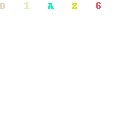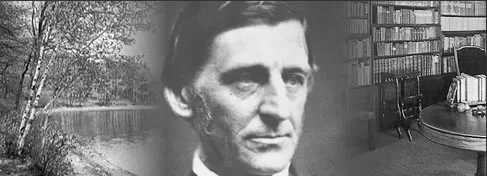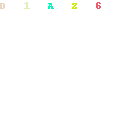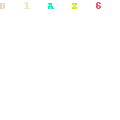This essay originally appeared in The Ideal in the West, by David A. Beardsley (idealinthewest.com)
Many of the principles Americans take for granted can be traced to the “Transcendentalism” of Emerson and his circle, whether realized or not. Over the next few episodes we will take a look at some of these principles and the people who helped to embed them into the modern American consciousness. The first, and perhaps most fundamental, is their insistence on the divine nature of each person, and its consequent effect on the expression of religion and spirituality.
In reading Emerson’s ecstatic and blissful descriptions of the One, it’s easy to forget that they were written against a backdrop of strong religious disagreements. The fracturing of the monolithic Christian church that had begun with Luther and led to the Pilgrims continued in the New World.  In many ways, Boston, and Harvard in particular, were ground zero for much of this controversy. As Philip F. Gura makes clear in his book American Transcendentalism: A History, Harvard was in the thrall of German theology at this time: “…with the conclusion of the War of 1812 and the reopening of safe travel to Europe, Americans began to visit the Continent and to study at German universities. Among the most prominent of these pioneers were George Ticknor, Edward Everett, George Bancroft, and Frederic Henry Hedge, all of whom eventually carved out positions of intellectual leadership in New England and led efforts to disseminate German language and thought.¹” Although these men laid the groundwork from which New England Idealism would flower, eventually the turf wars being waged in German universities found their way to the New World as well and opened another front in their hairsplitting academic battles. Congregations underwent mitosis around the smallest points of doctrinal interpretation, losing sight of the overarching Christian principles of love and forgiveness.
Emerson, a Unitarian by training and by nature, was only too aware of the negative effects of this sectarianism, and it formed part of his decision to leave the ministry in 1831.  In his journal on June 20 of that year he wrote, “Religion is the relation of the Soul to God, & therefore the progress of Sectarianism marks the decline of religion. For, looking at God instantly reduces our disposition to dissent from our brother. A man may die by fever as well as by consumption & religion is as effectually destroyed by bigotry as by indifference.â€
Especially after returning from Europe, Emerson had become a Protestant’s protestant.  His direct experiences of the Good, and his growing familiarity with the works of Plato and other non-Christian traditions, strengthened his belief in “the infinitude of the private man,” but it also got him into hot water with the religious establishment of his day. What Kathleen Raine says of England–“It must also be remembered that the academic world at that time consisted of Protestant clergymen, to whom the Platonic theology must have been extremely distasteful²”–was also true of America. When Emerson made his points, during the Divinity School Address, about two defects of “historical Christianity,” and urged his listeners to “love God without mediator or veil,†he was banned from speaking at Harvard for twenty years.
This view is also strongly expressed by other writers of the “Concord School”. Henry David Thoreau saw the presence of an eternal intelligence amid the birth, growth, and decay of the natural world.  In his attempt to “live deliberately,” he moved, in 1845, into a cabin on Walden Pond (on land owned by Emerson), and took the natural world as his subject for study. He was perhaps our first Naturalist, but not of Nature per se. Through his patient observations, he reveals it not as something to be feared, conquered, or exploited, but as an ally in the process of spiritual awakening. In Walden he says, in a vivid reformulation of Plato’s Divided Line, “As I stand over the insect crawling amid the pine needles on the forest floor, and endeavoring to conceal itself from my sight, and ask myself why it will cherish those humble thoughts, and hide its head from me who might perhaps be its benefactor, and impart to its race some cheering information, I am reminded of the greater Benefactor and Intelligence, that stands over me the human insect.”
He sees being in nature as a way of forcing us to slow down, to connect with forces within that are deeper than the transitory thoughts that push and pull us each day. Also in Walden he says, “When we are unhurried and wise, we perceive that only great and worthy things have any permanent and absolute existence,–that petty fears and petty pleasures are but the shadow of the reality.”
Walt Whitman, although not of Concord, embodied and expressed infinitude in a way that was often too much even for Emerson. But he acknowledged that Whitman represented the kind of authentic, new American voice about which he had written so often. In 1855 he had received unannounced from Whitman his ambitious poem, “Leaves of Grass,†and in a letter to a friend called it “the best piece of American Buddhism that anyone has had the strength to write, American to the bone.†Whitman had returned the favor by saying “My ideas were simmering and simmering, and Emerson brought them to a boil.â€Â In a time when it seemed everyone wanted to be a poet, Whitman blew the roof off the poetry world by breaking just about every rule there was, starting with meter and rhyme.
Whitman’s tone is that of the Creator himself taking endless delight in his own creation, seeing it all with equanimity and lack of judgment. From Song of Myself:
Trippers and askers surround me,
People I meet, the effect upon me of my early life or the ward and city I live in, or the nation,
The latest dates, discoveries, inventions, societies, authors old and new,
My dinner, dress, associates, looks, compliments, dues,
The real or fancied indifference of some man or woman I love,
The sickness of one of my folks or of myself, or ill-doing or loss or lack of money, or depressions or exaltations,
Battles, the horrors of fratricidal war, the fever of doubtful news, the fitful events;
These come to me days and nights and go from me again,
But they are not the Me myself.Apart from the pulling and hauling stands what I am,
Stands amused, complacent, compassionating, idle, unitary,
Looks down, is erect, or bends an arm on an impalpable certain rest,
Looking with side-curved head curious what will come next,
Both in and out of the game and watching and wondering at it.Backward I see in my own days where I sweated through fog with linguists and contenders,
I have no mockings or arguments, I witness and wait.³
So the God known to the Transcendentalists is not the distant, severe God of the church establishment: the Father-figure which uses fear and the threat of punishment to control his “children.” The religious establishments are in the business of providing identities to individuals: I am a Christian, I am a Jew, I am a Muslim. But in doing so, they prevent us from experiencing the Unity of the One; they keep us in a state of duality, opposition, alienation. This is fine for the ego–that which loves duality–but deadly for the soul.
For the Transcendentalists, God is the One, than which we cannot be other. It resists all attempts to define or limit. It is at the same time impersonal and totally personal–it is “the Me myself.” It is that which has loved us since before we were born.

Another expression of it comes from the work of Jones Very, a mystic or madman or both, who was part of the Concord circle in the late 1830’s. Although his poetry was diametrically opposed to Whitman’s in style–he wrote in strict Shakespearean sonnet form–his sense of the individual yet universal nature of this “Self” is the same.
The Better Self
I am thy other self, what thou wilt be,
When thou art I, the one seest now;
In finding thy true self thou wilt find me,
The springing blade, where now thou dost but plough.
I am thy neighbor, a new house I’ve built,
Which thou as yet hast never entered in;
I come to call thee; come in when thou wilt,
The feast is always ready to begin.
Thou should’st love me, as thou dost love thyself,
For I am but another self beside;
To show thee him thou lov’st in better health,
What thou would’st be, when thou to him hast died;
Then visit me, I make thee many a call;
Nor live I near to thee alone, but all.4

This work is licensed under a Creative Commons Attribution-NonCommercial-NoDerivs 3.0 Unported License Graphics are not copyrighted, and are believed to be in the public domain.
¹Philip F. Gura, American Transcendentalism: A History, 2007, Hill and Wang, p. 26
²Kathleen Raine and George Mills Harper, eds., Thomas Taylor the Platonist: Selected Writings, Princeton University Press, 1969, p.21
³Allen Mandelbaum & Robert D. Richardson Jr., eds., Three Centuries of American Poetry, Bantam Books, 1999, p. 246
4Mandelbaum & Richardson, op. cit., p. 212


